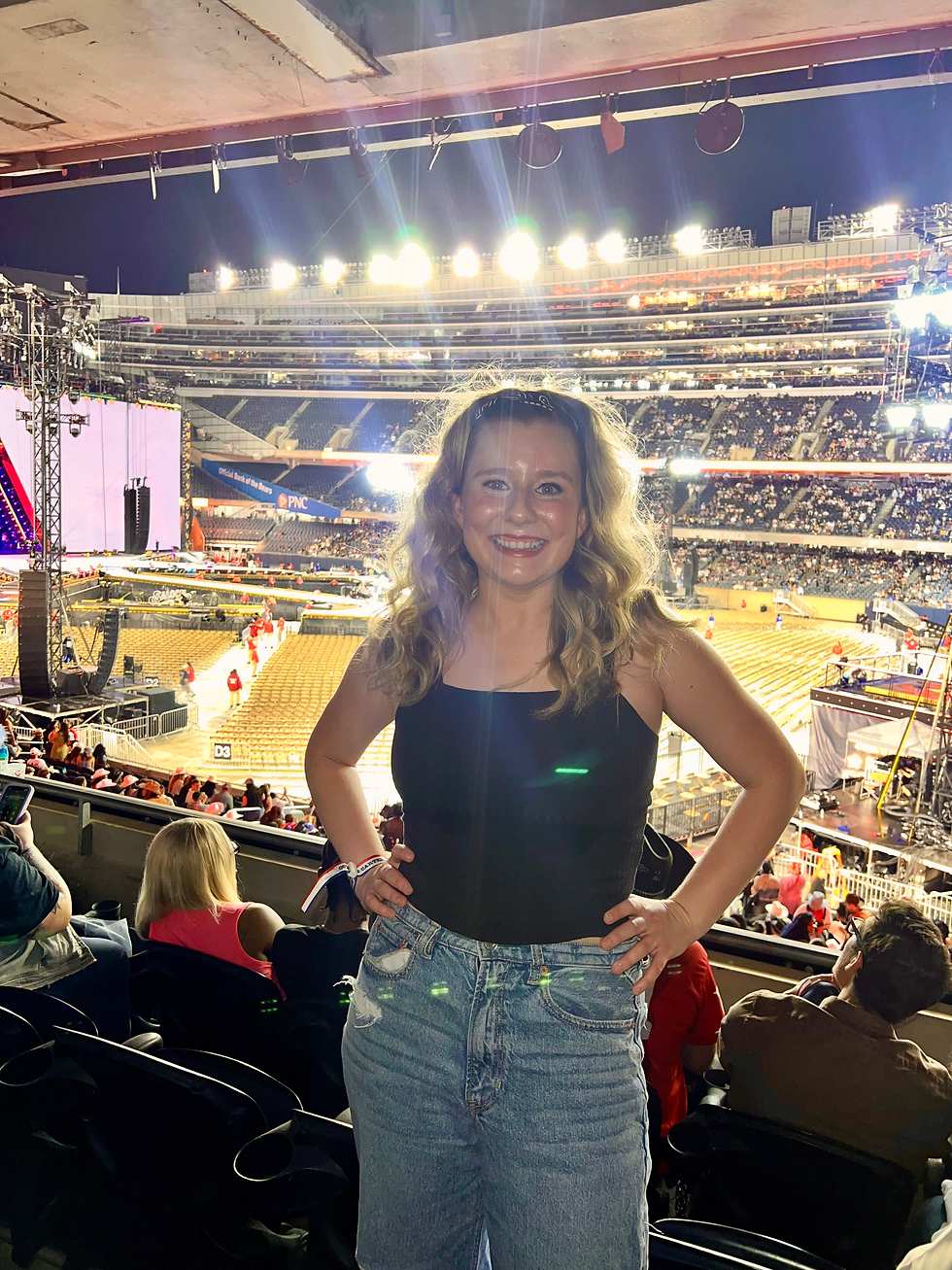Pitch Imperfect
- The Nashville Diary

- Aug 12, 2019
- 3 min read

Hi, I’m Brina, and I’m a singer, and I can admit to being pitchy sometimes.
Crazy right? But somehow I'm still out here doing this thing...
After reviewing my performance from The Old Line, I was definitely concerned. There were so many instances I heard of myself being pitchy in certain songs, and it was very discouraging. I don’t want to be one of those people who can’t perform live, or needs to depend on auto-tuning, and given my musical background, this should not be an issue.
So I took this concern to my voice teacher, and after some trial an error we had a bit of a breakthrough.
The thing about my pitchiness is not that I can’t hear or don’t know when I’m off. Given my musical background, I can tell when a note is flat or sharp when it shouldn't be, and honestly, this was the most frustrating part of it. I'd be in the moment, singing a melody I wrote, and feel myself singing the wrong pitch.
After experimenting a little, we discovered that it has a lot more to do with the SPEED of what I'm singing, and if the notes are jumping around a lot. That’s why when I’m singing a song more slowly like in “I Met a Guy” it isn't as much of a noticeable issue. My brain takes a second to find the note and if it comes faster than I’m able to figure it out, it doesn't sound the way it should, because the time I get it right I already need to jump to the next note.
So each week, my coach Brian gives me an exercise and then measures my progress. To help with this problem, he had me do a small scale, and we tested to see how fast I could go before I "lost control" aka lost the pitch. Then, we slowed it down to a speed I was solid at and I was to practice it like that for the week. Then when we meet again we test it again. What is great about this is that progress can be measured. When I'm able to maintain control at a faster pace, we either speed it up for the next week or complicate the scale.
I've definitely made a lot of improvements since this performance, but I'm still working on it every day. I'm also working on expanding my range.
I didn't just come to Nashville to write songs. I came here as an artist, so being able to perform and sing my songs the way I want them to sound is very important to me. That's why it was important for me to invest time and money into vocal coaching.
I had a lot of recommendations, but what stood out to me about Brian was how scientific his approach was, and also how personalized it felt. I've had vocal coaching here and there throughout my life and never realized that speed and jumping notes was what was causing problems.
My advice to aspiring artists on this is to not let your flaws hold you back. Put yourself out there knowing you might not be perfect every time and use each performance as an opportunity to grow. It's all a learning experience, and the truth is you're never going to feel completely prepared, but the more you put yourself out there the more comfortable and confident you will become.
At the end of the day, most people aren't going to notice when you miss a note or two. But they will remember the fun time they had at your show or the lyrics of your song they connected with, or how nice you were to them afterward.
I'd also say find a coach you believe in. This can seem simple, but especially in a place like Nashville, there will be a billion people to choose from. Take the time to go to a consultation, make sure their training isn't one size fits all, and that they're someone you can feel comfortable making mistakes in front of. I considered a lot of people and I ended up choosing Brian because he had me sounding and feeling better within a few minutes after some simple suggestions.
At the end of the day, we are our own version of a work in progress. Don't let the fear of missing a note keep you away from the mic. Do you best each time and only compete with the person you were yesterday.
If you're looking for a vocal coach in the Nashville area, definitely check out Brian Lucas of Voice Lab Nashville.




Comments